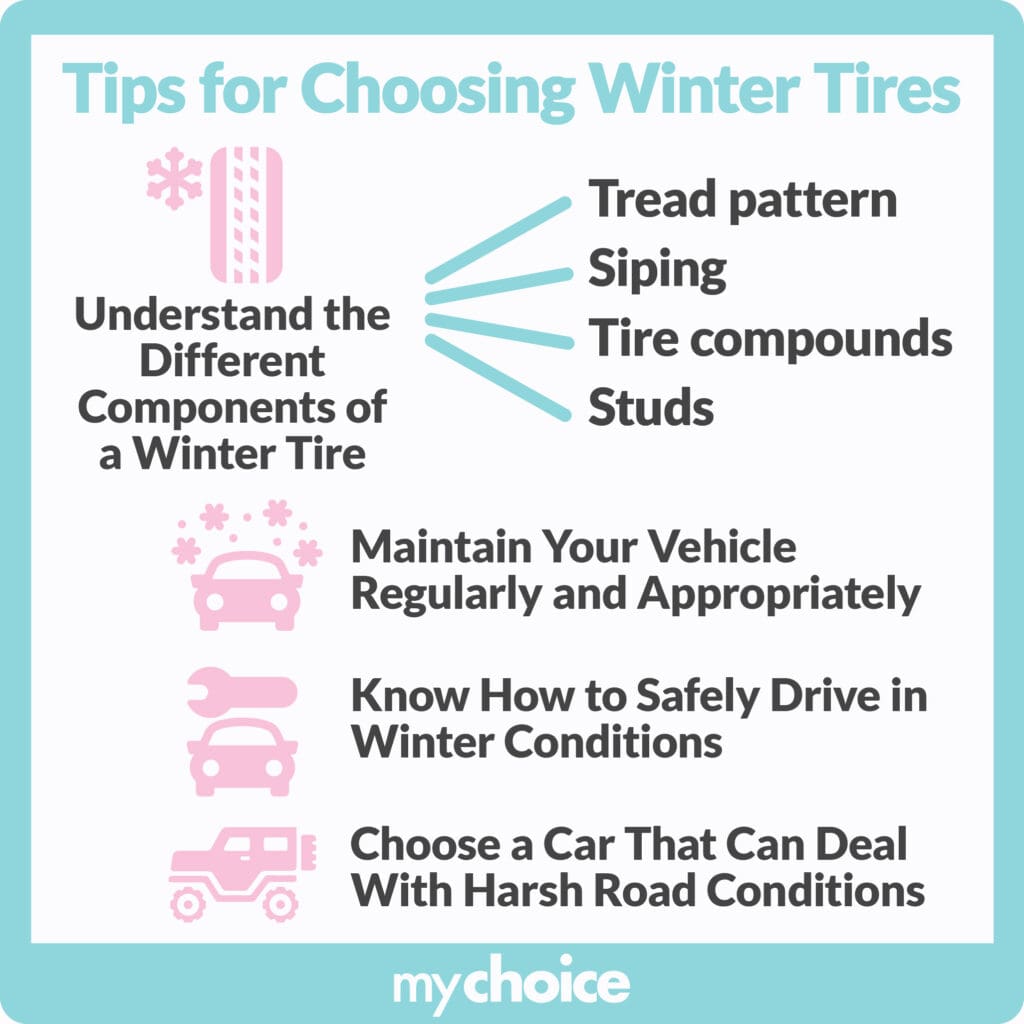Canadian winters can be unforgiving, and winter tires are a necessity. However, choosing one isn’t as simple as walking into a store and finding something that fits – you must consider how it performs in snow, rain, and on ice.
Your choice of winter tires can determine how safely you drive, just like choosing the right pair of shoes can influence how comfortable you are on a jog. Discover the best tires for driving through the Canadian winter.
Best Winter Tire Brands in Canada
There are many winter tire brands in Canada to choose from, but these five stand out from the rest.
Tips for Choosing Winter Tires
The best winter tire for your vehicle will ultimately depend on the weather conditions where you live and what car you drive. However, you can follow these best practices when preparing your car for winter.

Key Advice From MyChoice
- Study the weather conditions in your area. Whether it experiences heavy snowfall, strong rains, and lots of sleet can influence what type of winter tire you choose.
- Know when to put on and remove winter tires. It’s best to install them when temperatures reach below 45F/7.2C and remove them when the weather is consistently above this.
- To extend their longevity, store your winter tires properly. Keep them in a cool and dry location, like a basement or garage. Placing them in black storage bags can keep them from drying or cracking.
- Find out how you can apply for an Ontario winter tire discount and afford the best possible winter tires.








